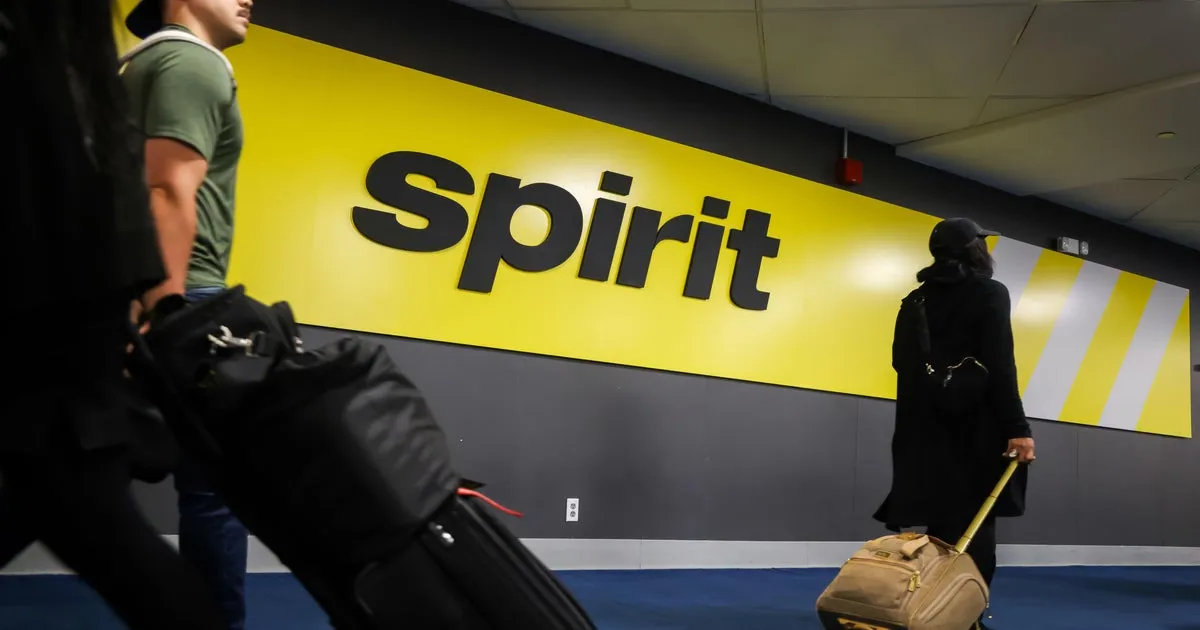
On Friday, Spirit Airlines, the well-known budget carrier, announced that it has filed for bankruptcy protection just months after completing a previous Chapter 11 reorganization. The no-frills airline reassured passengers that it intends to maintain normal operations during this restructuring phase. This means that travelers can continue to book flights and utilize their existing tickets, credits, and loyalty points without interruption. The company also confirmed that its employees and contractors would continue to receive their pay during this period.
Spirit's CEO, Dave Davis, explained that the airline's prior Chapter 11 filing was primarily aimed at reducing debt and securing capital. Since exiting that process in March, it has become evident that additional measures are necessary for the airline's long-term viability. “There is much more work to be done, and many more tools are available to best position Spirit for the future,” Davis stated.
In a recent quarterly report, Spirit Aviation Holdings, the parent company of Spirit Airlines, expressed significant concerns about its ability to continue operations over the next year—an issue typically described in accounting terms as “going concern.” The airline cited challenging market conditions that have emerged following its most recent restructuring efforts. These challenges include a persistent decline in demand for domestic leisure travel, which has affected the airline's performance in the second quarter of its fiscal year. Furthermore, the Florida-based company anticipates ongoing uncertainties in its business operations at least until the end of 2025.
Since the onset of the COVID-19 pandemic, Spirit Airlines has faced numerous challenges in recovering and competing within the aviation sector. The airline's rising operational costs and increasing debt burdens led to its initial bankruptcy filing in November, during which it reported losses exceeding $2.5 billion since early 2020. After emerging from bankruptcy in March, Spirit successfully restructured some of its debt and secured new financing to support its future operations.
Despite these efforts, Spirit Airlines has continued to implement cost-cutting measures. Recently, the airline announced plans to furlough approximately 270 pilots and downgrade about 140 captains to first officers in the upcoming months. These changes are set to take effect on October 1 and November 1 to align with projected flight volumes for 2026. These staffing reductions follow earlier job cuts made prior to the airline's bankruptcy filing last year.
Despite ongoing cost-cutting initiatives, Spirit Airlines has indicated a pressing need for additional cash flow. To address this, the company is considering the sale of certain aircraft and real estate assets. In a competitive landscape where discount carriers are struggling against larger airlines—many of which have attracted budget-conscious customers with tiered pricing strategies—Spirit is attempting to adapt by introducing more upscale travel options. The airline has begun offering tiered flight prices, where higher-priced tickets come with enhanced amenities.
Spirit's relatively young aircraft fleet has made it an appealing target for acquisition. However, previous attempts by budget competitors such as JetBlue and Frontier to acquire the airline have not succeeded, both before and during its bankruptcy proceedings. As Spirit Airlines navigates its current challenges, it remains to be seen how these factors will influence its future in the aviation industry.